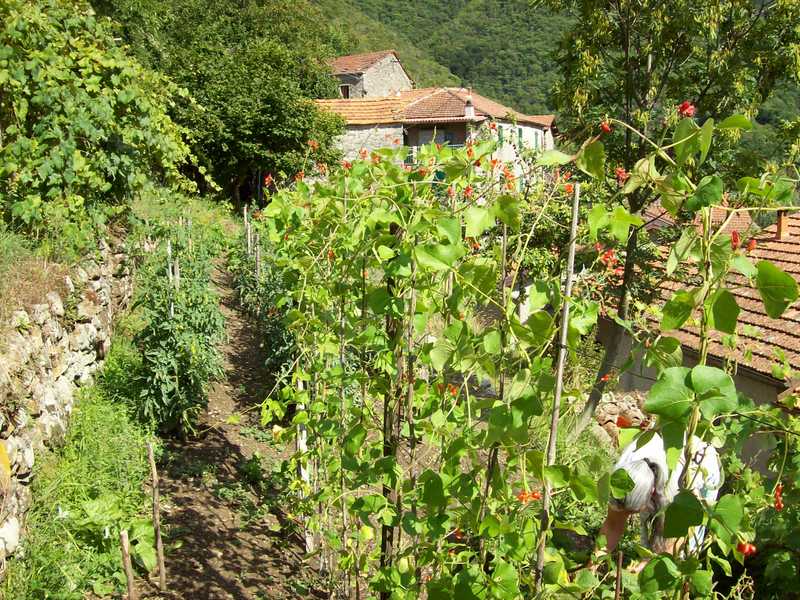One of the questions that we are most frequently asked by readers is: ‘why oh why is there a non in the expression finché non or fino a quando non (meaning: until)?’ Ah, the dreaded pleonastic non, enemy of every student of Italian!
Well, this is one of those cases in which you just have to accept that it works that way in Italian, even if it doesn’t make sense in English. My advice is to kick that bad habit of translating everything word for word, it’s usually more of a hindrance than a help.
Just Finché
Let’s begin by looking at finché without the non, and work our way forward from there, va bene?
Finché on its own means: ‘as long as’, or ‘while/whilst’. Here are some everyday examples of how we use it:
finché piove non possiamo uscire di casa = we can’t go out while it’s raining
restate finché volete = stay as long as you (plural) want
ti amerò finché vivrò = I will love you for as long as I live
ha continuato a camminare finché c’era luce = he kept walking while there was still light/for as long as the light lasted

“fino a quando c’è acqua possiamo continuare a innaffiare l’orto”. Photo by Geoff
Fino a quando …
Fino a quando is synonymous (and interchangeable) with finché:
fino a quando c’è acqua possiamo continuare a innaffiare l’orto = whilst there’s water we can continue watering the vegetable garden
N.B. When used as a question, fino a quando? means ‘until when?’ E.g.:
Fino a quando resti in Italia? = until when are you staying in Italy?
And now … the dreaded Finché non!
Finché non means ‘fino al momento in cui‘ (‘until the moment in which’), and is normally translated as ‘until’. The ‘non‘ in this case is a false negative which is not translated. Here are some examples of how we use it:
finché non smette di piovere non possiamo uscire di casa = we can’t go out until it stops raining
non ti muovere finché non lo dico io = don’t move until I say so
ha continuato a camminare finché non ha fatto buio = he kept walking until it got dark
abbiamo aspettato finché non è arrivato Mario = we waited until Mario arrived
finché non avrai finito i compiti non andrai fuori a giocare = you can’t go out to play until you’ll have finished your homework
Fino a quando non …
Fino a quando non is synonymous (and interchangeable) with finché non:
Fino a quando non ritiro i risultati dell’esame non saprò com’è andata = until I get the exam results I won’t know how it’s gone
To summarize:
finché/fino a quando = ‘as long as’ or ‘while’
finché non/fino a quando non = ‘until’


Comments:
Jacqui:
Really useful and very clear explanation – Grazie motto. Jacqui
Elaine:
Grazie mille. Lovely clear explanation. I shall be printing it out and sticking it somewhere where I see it every day until (finché non!!) I can remember it!!
Donna Kelaher:
Thank you so much. I have read every entry you have published. You are always “spot on.” This last one was no exception. .Great explanation of a difficult point that I had to figure out myself after encountering it in several texts. I wish I had read your post first. I wish there were a “stick and mortar “building where your followers could attend class with you. It would be awesome. Thanksagain
Ann:
Excellent lesson! Can you also explain ‘affinche’? Grazie mille, Ann
Michael Stevens:
No source of Italian grammar and usage is clearer than yours. The examples are sooooo helpful. Thank you so much!!!
paolo minotto:
Chiarissimo. Grazie mille!
Virginia Sharkey:
Grazie Mille Geoff!!!
Geoff:
@Virginia Sharkey Non c’è di che! 🙂
June:
Mille grazie! Adesso tutto e’ chiarissimo e semplice.
Richard Felder:
If I only had this blog (and all its companions) when I was studying Italian, my life would have been so much better! Thank you.
Joan Engelhaupt:
Thank you! This has mystified me for quite some time.
Eric:
Can one use the “congiuntivo” either finché and fino a quando phrases?
Serena:
@Eric Salve Eric, the use of the subjunctive depends on the main verb, if it’s a verb which expresses doubt, desire, etc, than you can use subjunctive.
Saluti da Serena